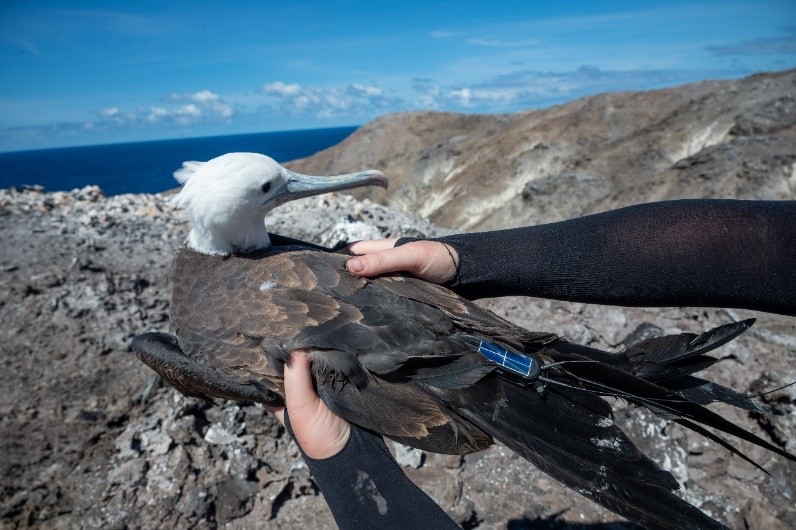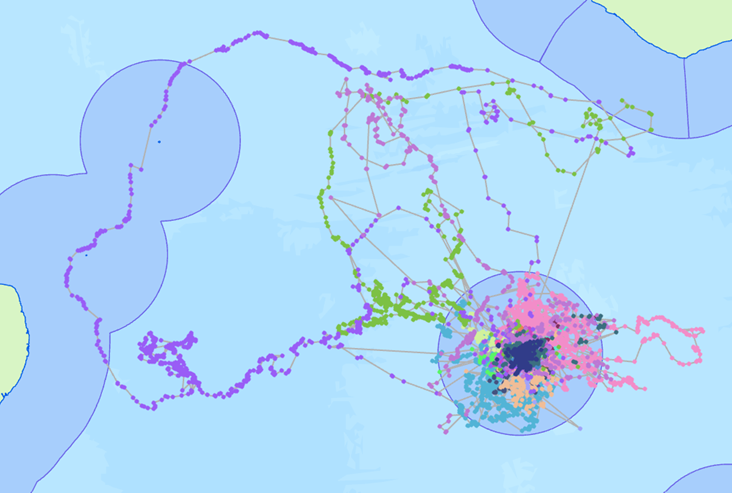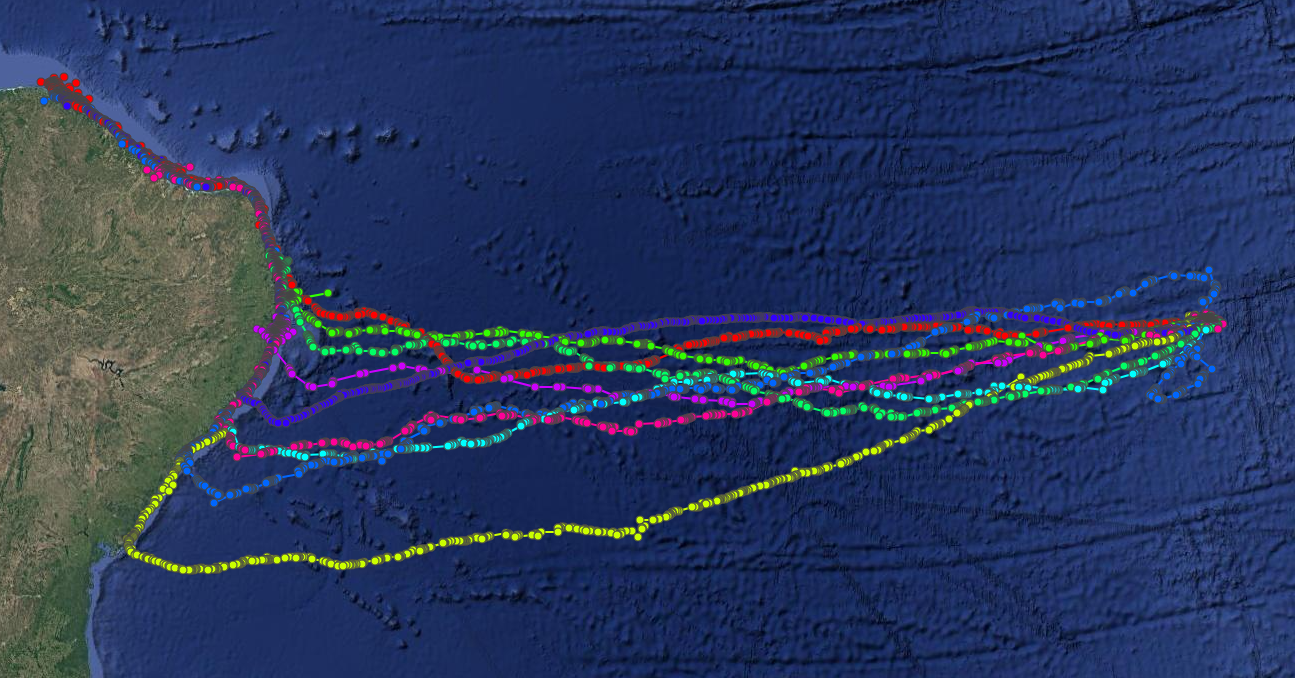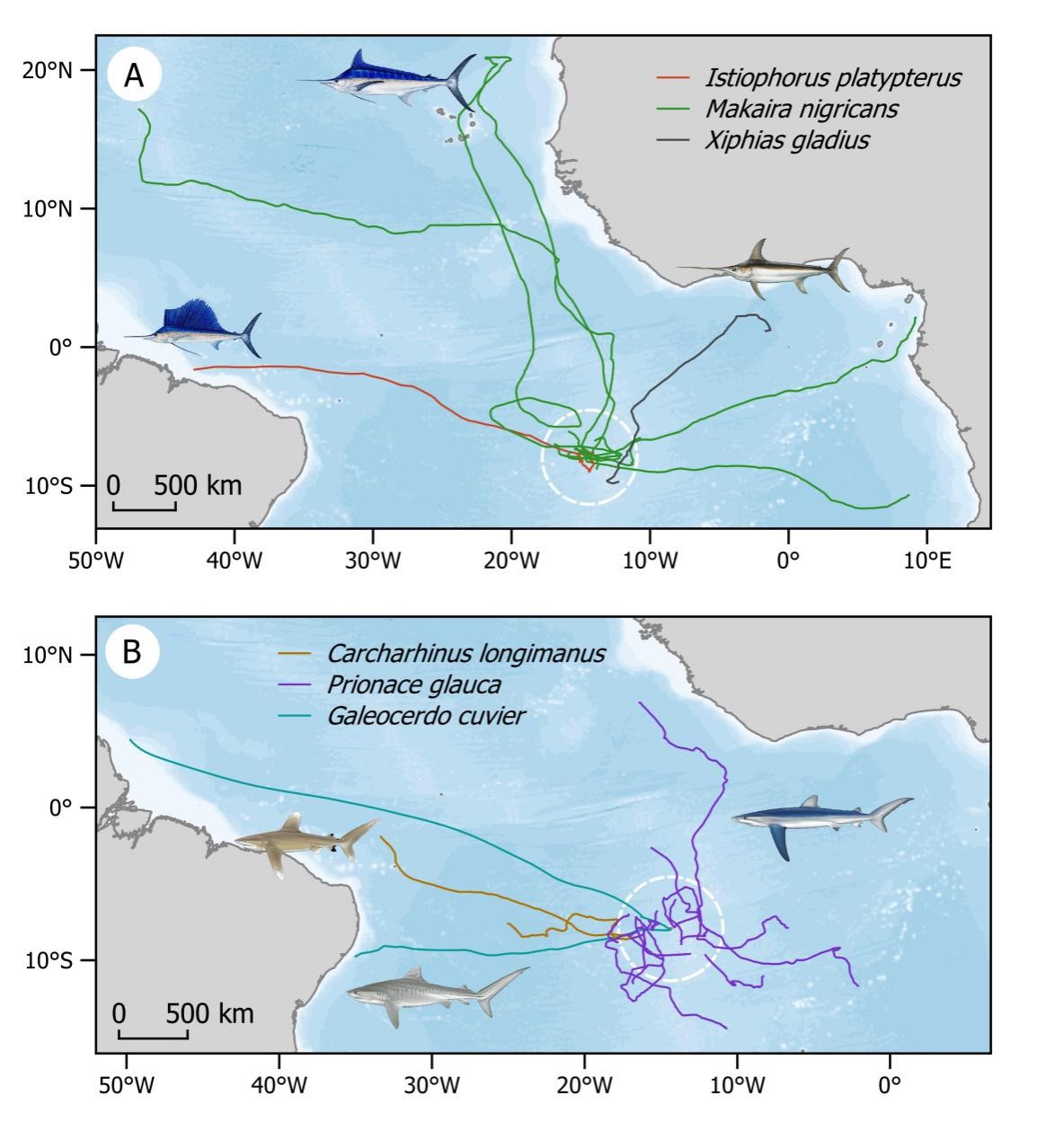Government > News
Conservation, Press Release
Last week, the UK government introduced a landmark piece of legislation, creating a legal mechanism to set up protected zones beyond national jurisdiction, helping to protect marine life and habitats that were previously vulnerable to overuse and exploitation. This builds on the UK’s commitment to global marine conservation through its signing of the Biodiversity Beyond National Jurisdiction (BBNJ) Agreement in 2023. The UK was among the first nations to sign this agreement, reinforcing its leadership in protecting marine ecosystems beyond national borders.

With over 95% of the UK’s biodiversity found in its Overseas Territories, conservation efforts in these regions are critical to safeguarding globally important species and habitats. Ascension Island plays a key role in achieving these international targets, with the Ascension Island Marine Protected Area (MPA) safeguarding 100% of the island’s Exclusive Economic Zone (EEZ).
For several years, the Ascension Island Government Conservation and Fisheries Directorate (AIGCFD) has been tracking key species to identify biodiversity hotspots in the high seas beyond the MPA. Using satellite tags, the conservation team have monitored seabirds, turtles, sharks, and fish to better understand their migratory routes. The data highlight the importance of equatorial ocean currents north of the island, which connect Ascension Island with ecosystems in Africa and the Americas.
One major initiative, the Protecting Seabirds Across Borders project, is funded by the UK government’s Biodiversity Challenge Fund via the Darwin Initiative (DPLUS195). This project focuses on tracking Ascension frigatebirds (Fregata aquila) and masked boobies (Sula dactylatra), species known to venture outside of the Ascension Island MPA. Collaborating with BirdLife International, Global Fishing Watch, and the Centre for Environment, Fisheries and Aquaculture Science (CEFAS), the project is investigating the risks these seabirds face from high seas fishing activities, including threats from bycatch and overfishing, which affect the birds’ feeding behaviours. The project also integrates historical tracking data from Ascension Island and neighbouring St Helena, including records on tropicbirds (Phaethon spp.) and storm petrels (Oceanodroma spp.), with support from the St Helena government.

Further tracking efforts have focused on green turtles (Chelonia mydas), whose migratory journeys extend across the Atlantic to feeding grounds off the coast of Brazil. This research, supported by the UK Government’s Blue Belt Programme, has shown that turtles rely on multiple seagrass meadows along the Brazilian coast, highlighting the complexity of protecting critical habitats across international waters.

Tracking of sharks and billfish have revealed similar patterns. While most Galapagos sharks (Carcharhinus galapagensis) remain near the island, many highly migratory fish species use the Ascension MPA for feeding and foraging but also migrate extensively into the high seas.

The AIGCFD will continue using and adding to this critical tracking data to advocate for the protection of biodiversity hotspots across the tropical Atlantic. By collaborating with UK Government scientists and international partners, Ascension Island will continue to play a leading role in global marine conservation, ensuring that this small island has a strong voice on the international stage to protect species of local and global importance.
AIG Conservation and Fisheries Directorate
17 September 2025
